Taking care of your liver is like giving your body a fresh start. After years of substance use, your liver has worked overtime, filtering out toxins. Now that you’re on the path to sobriety, supporting your liver can help it function better and recover from the damage. The foods you eat play a huge role in this process. By adding specific, liver-friendly foods to your diet, you can naturally help your liver cleanse itself and feel healthier from the inside out.
Whether it’s flushing out toxins or helping repair cells, these foods can be powerful allies on your journey to better health.
Why Liver Health is Important in Recovery
Your liver is the body’s detox powerhouse, but it can easily become overwhelmed after years of substance use as it tries to filter out all the toxins. That is why giving extra support to the liver is a smart move when one is healing.
The liver doesn’t only process toxins but breaks down fats, regulates blood sugar levels, and manufactures proteins for the body. If it is not functioning well, it affects your energy, mood, and overall health.
Caring for your liver in recovery has several positive effects:
- Better digestion and metabolism.
- Reduced inflammation, hence quicker recovery.
- A healthier immune system.
11 Powerful Foods That Help Cleanse the Liver
These foods can help your liver do its job better:
- Garlic
- Citrus fruits (lemons, oranges, grapefruit)
- Turmeric root
- Leafy greens (spinach, kale, arugula)
- Beetroots
- Apples
- Walnuts
- Green tea
- Cruciferous vegetables (broccoli, cauliflower, Brussels sprouts)
- Coffee
- Fatty fish (salmon, mackerel, sardines)
1. Garlic
Garlic has been known for centuries as a powerful medicinal food, and when it comes to liver health, it truly shines. Garlic is full of sulfur compounds, especially allicin, which activates major liver enzymes. These enzymes flush out toxins in the body, making garlic a natural detoxifier. Whether one has been trying to recover from years of substance use or just wants to give the liver some support, adding garlic to meals can make the biggest difference.
One study showed that garlic also plays an important role in reducing liver inflammation and improving liver function. This is very important for people undergoing their path to sobriety, where detoxification plays a major part in recovery. The next time you cook, add more garlic- not just for the taste but for your liver’s sake.
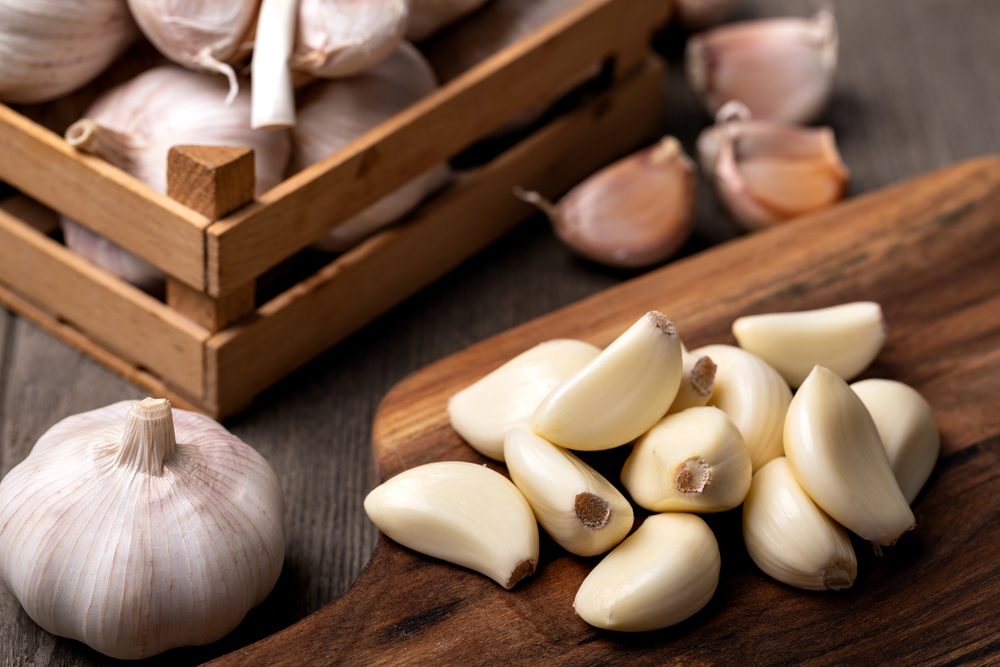
2. Citrus Fruits (Lemons, Oranges, Grapefruit)
To your liver, citrus fruits are little sacs of sunshine. They contain vitamin C and antioxidants, supporting your liver’s natural detoxification process. Lemons, oranges, and grapefruits work especially at reducing liver inflammation and protecting the cells from damage. These fruits don’t just taste good—they’re working behind the scenes to help your liver function more smoothly.
Research has also shown that citrus fruits can help prevent fatty liver disease and reduce inflammation. This is key for anyone in recovery. Adding citrus to your diet adds freshness to your plate and helps your liver get back on track.

3. Turmeric Root
Turmeric acts like a superhero to the liver. That golden spice is packed with an active compound called curcumin, which possesses a richness of anti-inflammatory and antioxidant properties. It has been observed that turmeric contributes to cell repair in the liver and supports detoxification in flushing out harmful elements. If your liver has seen the worst, turmeric helps soothe and restore it, making it very apt for recovery diets.
Indeed, one study found that curcumin helps reduce liver inflammation, which is crucial for people trying to recover from heavy alcohol use. Whether you add turmeric to meals for flavor or mix it into hot water and milk for a therapeutic tea, you give the liver just what it needs to heal and function better.
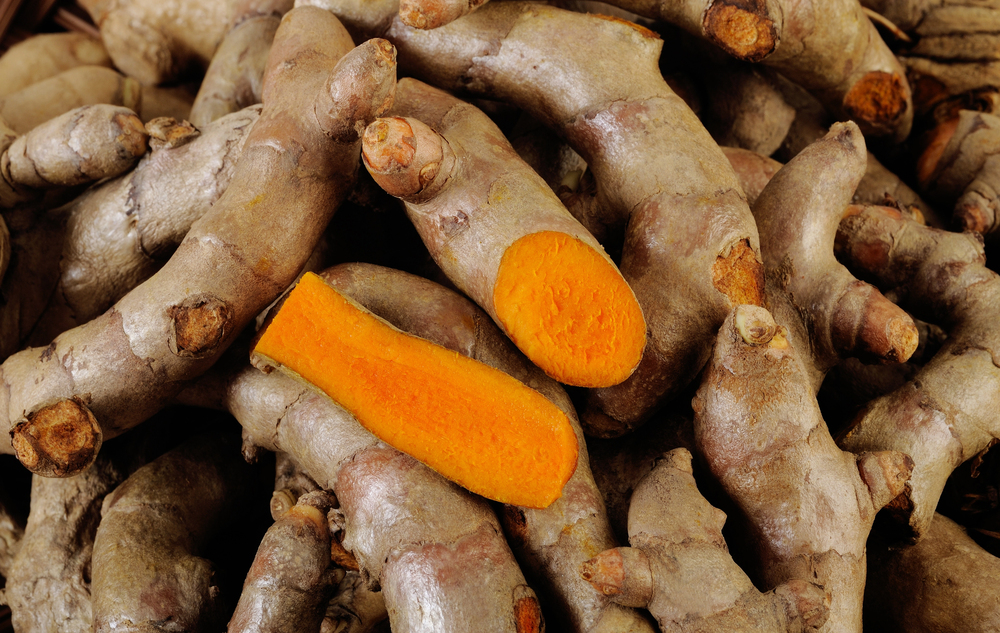
4. Leafy Greens (Spinach, Kale, Arugula)
Leafy greens are some of the best allies for liver health. They’re loaded with chlorophyll, which acts like a sponge, soaking up toxins and helping the liver cleanse the body more effectively. Whether eaten raw, cooked, or blended into smoothies, greens like spinach, kale, and arugula are easy to incorporate into your daily diet. They’re not just good for detoxing—they also reduce oxidative stress on the liver.
Studies have shown that regularly eating leafy greens can lower the risk of liver diseases. They help combat inflammation and oxidative stress, which are key issues for those healing from substance use. So, load up your plate with these greens and give your liver the boost it deserves.

5. Beetroots
Beetroots are the liver’s best friend for reducing inflammation and fighting oxidative stress. They are rich in betalains, which are powerful antioxidants that help the liver detoxify and protect against damage. Whether you enjoy beetroot in juice form or roasted in a salad, you’re giving your liver a big hand in detoxifying your body.
Research has shown that beetroots help reduce liver inflammation and support detox processes, making them perfect for anyone looking to repair and cleanse their liver. Plus, beets are delicious and versatile, making it easy to work them into your meals.
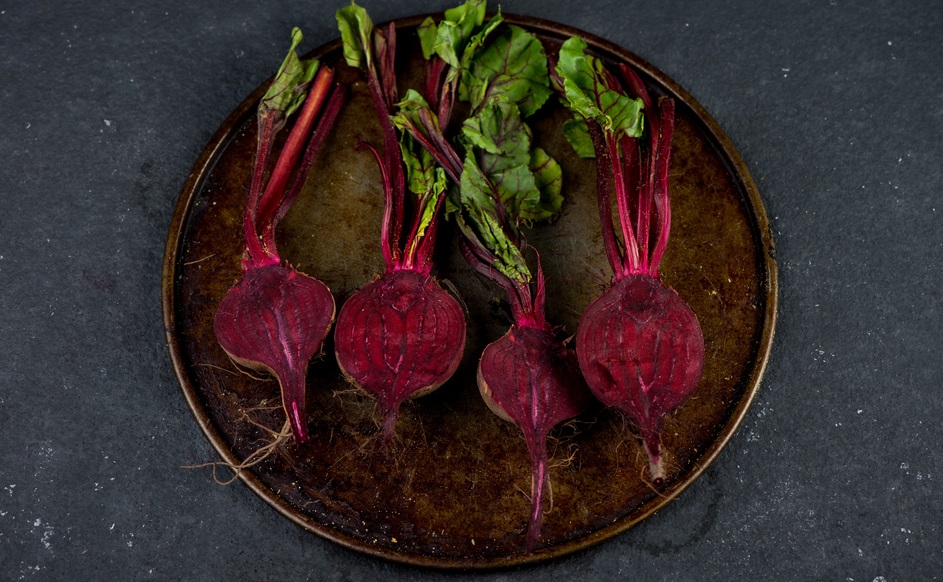
6. Apples
An apple a day really can help keep the doctor away—especially when it comes to liver health. Apples are high in pectin and malic acid, both of which help your liver by removing toxins and controlling serum lipid levels. Apples are also known for their anti-inflammatory properties, making them a great choice for keeping fatty liver disease at bay.
Studies have shown that apples can reduce inflammation in the liver and help prevent fatty liver. So whether you’re snacking on a raw apple or adding slices to your salad, you’re doing your liver a big favor.

7. Walnuts
Walnuts are more than just a tasty snack—they’re packed with omega-3 fatty acids and glutathione, which are known to help detoxify the liver. These nutrients help remove toxins and reduce fat buildup in the liver, making walnuts a great food for liver health, especially if you’re in recovery.
Research shows that walnuts are linked to improved liver function and a reduction in fat accumulation. So, adding a handful of walnuts to your daily routine is an easy way to give your liver the nutrients it needs to stay healthy.

8. Green Tea
Green tea’s antioxidants act positively on the liver. It contains catechins, which improve liver enzyme levels and help reduce fat deposition in the liver. Altered intake of green tea has been associated with reduced risks of liver diseases, especially NAFLD.
Studies have shown that green tea can dramatically lower the levels of liver enzymes in the body, which are related to liver damage. If you are on the road to healing, switching to green tea for your mind and body may be comforting and an added reward.
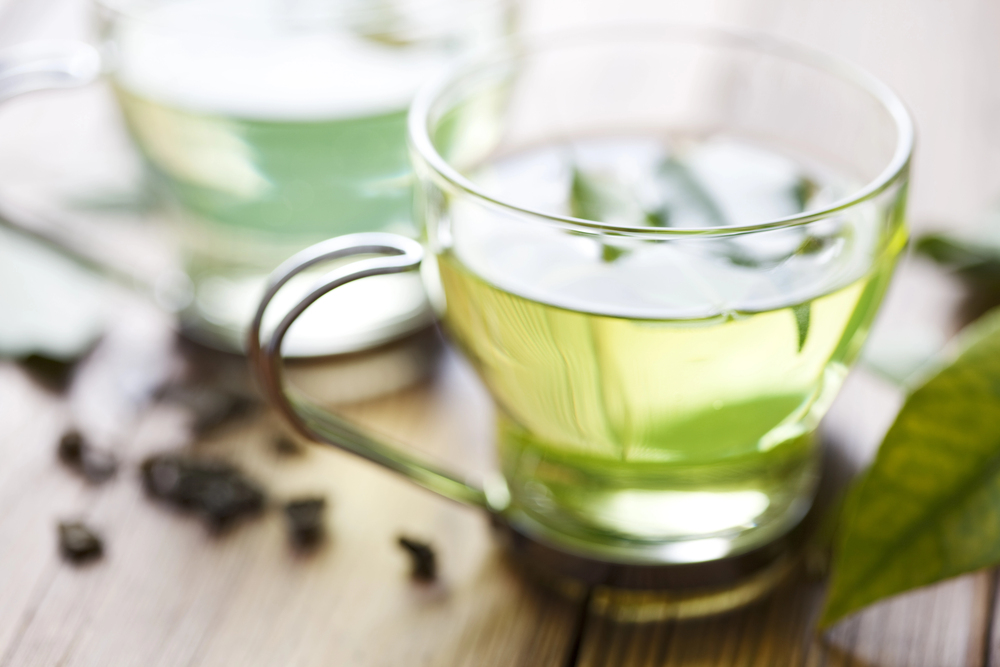
9. Cruciferous Vegetables (Broccoli, Cauliflower, Brussels Sprouts)
Cruciferous vegetables are a secret weapon for liver detox. Broccoli, cauliflower, and Brussels sprouts contain plant compounds like glucosinolates that aid in detoxification and protect the liver from damage. These veggies are also high in fiber, which supports digestion and overall health.
They have been found to reduce tumor risks in the liver and promote detoxification processes in the same. Adding these vegetables to your diet is a very easy and efficient way to protect your liver and boost its function.
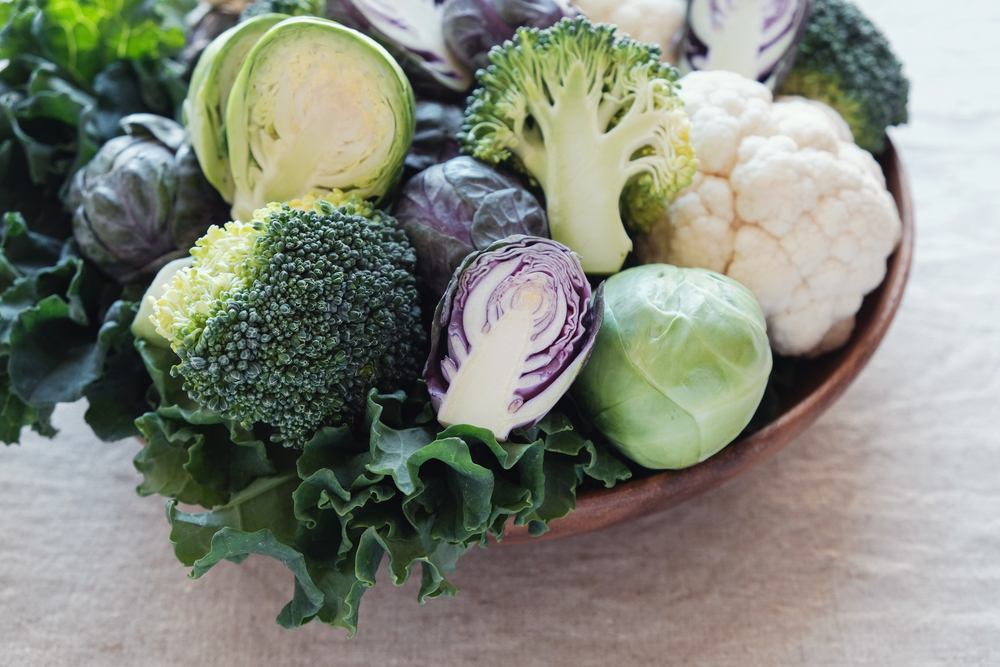
10. Coffee
Believe it or not, your morning cup of coffee does more than just wake you up—it’s also helping protect your liver. Studies have shown that coffee can lower the risk of cirrhosis and liver cancer while also reducing fat and collagen buildup. Coffee also increases antioxidants like glutathione, which neutralizes harmful free radicals.
Research confirms that people who drink coffee regularly have a lower risk of developing liver disease. So, if you’re a coffee lover, you can feel good knowing it’s not just helping your energy levels—it’s helping your liver, too.

11. Fatty Fish (Salmon, Mackerel, Sardines)
Fatty fish like salmon, mackerel, and sardines are loaded with omega-3 fatty acids, which reduce inflammation and lower liver fat. These healthy fats are essential for keeping your liver functioning properly, especially if you’re recovering from a period of unhealthy habits. Omega-3s help balance out the effects of omega-6 fatty acids, which can cause liver inflammation when consumed in excess.
Research shows that regular consumption of omega-3-rich fatty fish helps reduce triglycerides and liver fat, especially in people with NAFLD. By adding fatty fish to your diet, you’re giving your liver the fuel it needs to stay healthy and fight inflammation.

How to Incorporate Liver-Cleansing Foods into Your Daily Diet
Adding liver-friendly foods to your everyday meals doesn’t have to be complicated. Whether you’re blending greens into a smoothie or adding garlic to your stir-fry, small adjustments can make a big impact. The key is consistency—making these foods a regular part of your diet can help your liver detox and function better.
Here are some simple tips to get started:
- Add garlic to your sauces, soups, or roasted veggies for an easy health boost.
- Squeeze lemon juice into your water or over salads for a refreshing, liver-loving drink.
- Blend leafy greens like spinach or kale into smoothies or throw them into a salad or sauté.
- Snack on apples or walnuts to support your liver in between meals.
- Drink green tea daily for a soothing, antioxidant-packed beverage.
Other Lifestyle Habits to Support Liver Health
Diet is just one part of liver care. There are other habits that can further support a healthy liver.
Consider these lifestyle tips:
- Stay hydrated by drinking plenty of water to help flush out toxins.
- Exercise regularly to improve circulation and aid in detoxification.
- Get enough sleep to allow your body to repair and recover.
- Avoid alcohol to prevent further liver stress.
- Reduce processed foods that can strain the liver over time.
Conclusion
Supporting your liver during recovery is one of the best ways to give your body a fresh start. By eating liver-cleansing foods like garlic, citrus fruits, and leafy greens, you help your liver heal and work more efficiently. Along with a balanced diet, simple lifestyle changes like staying hydrated and getting enough sleep can make all the difference. A healthy liver not only improves your physical well-being but also makes it easier to stay on the path to sobriety.
FAQs
What are the best foods that help cleanse the liver during recovery?
Foods like garlic, citrus fruits, leafy greens, and turmeric are great for liver cleansing. They help detoxify and reduce inflammation, supporting your liver as it heals.
Can eating certain foods really help detox the liver?
Yes, specific foods are proven to support the liver’s natural detox process. Foods rich in antioxidants and fiber, like beetroots and apples, can make a big difference in how efficiently your liver works.
What foods help detox your body and improve liver function?
Foods like green tea, walnuts, cruciferous vegetables, and fatty fish not only help detox your liver but also aid in overall body detoxification.
How long does it take for foods that help liver detox to show effects?
The time it takes varies, but with consistent dietary changes, you may start feeling better in a few weeks. Long-term results come with maintaining these habits over time.
Are there any risks in relying solely on foods to help detox the body?
While these foods support liver health, relying only on diet without considering other factors like hydration, sleep, and avoiding alcohol may give you the best results. A holistic approach is always better.
**This article is for informational purposes only and is not intended as a substitute for professional medical advice, diagnosis, supplement, or treatment. Always seek the guidance of your physician or other qualified health provider with any questions you may have regarding a medical condition or treatment. Never disregard professional medical advice or delay seeking it because of something you have read in this article.



